The Resilience of Local
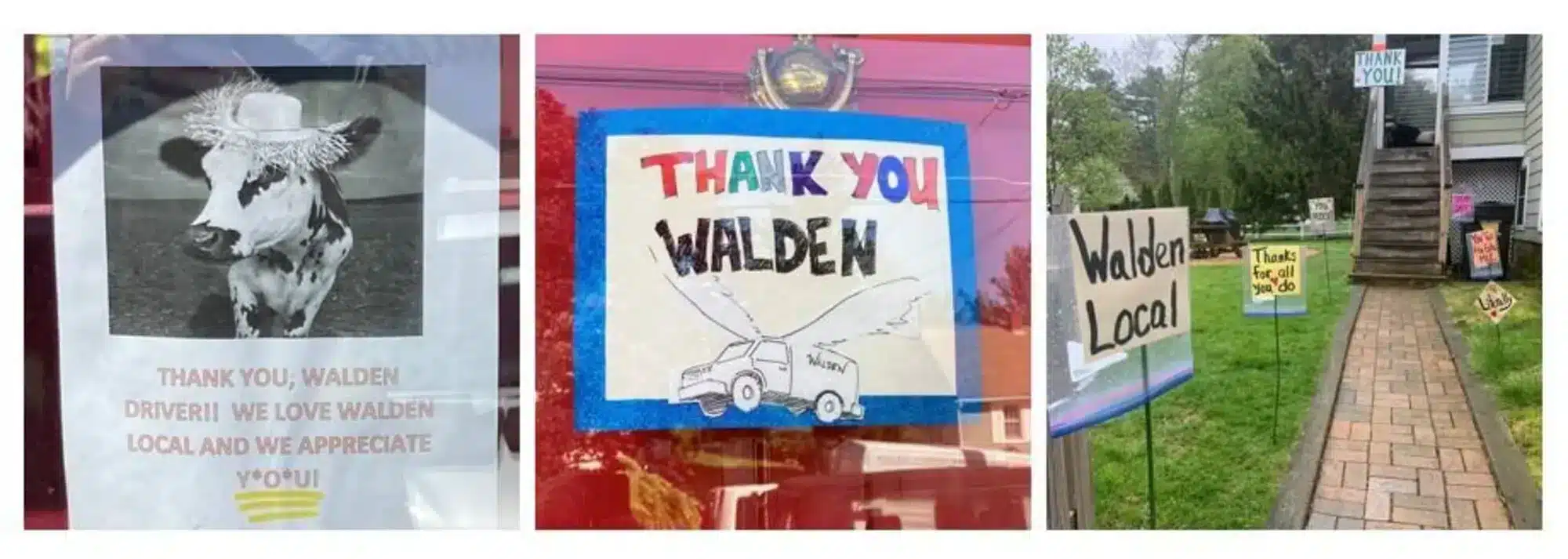
We have been fortunate to keep our doors open through the midst of the Covid-19 pandemic, and serve our community through this challenging time. Walden along with our partner farmers have all rallied around the idea that this is our moment: as the industrial factory farm model begins to demonstrate its frailty, we are all stepping up to demonstrate the resilience of local systems. As communities began to experience the effects of stockpiling and panic buying, local famers were feeling the squeeze for demand when the grocery store shelves became empty. Our partner farmers, Christine and Brian Templeton, know all about the demand that has affected local farmers.
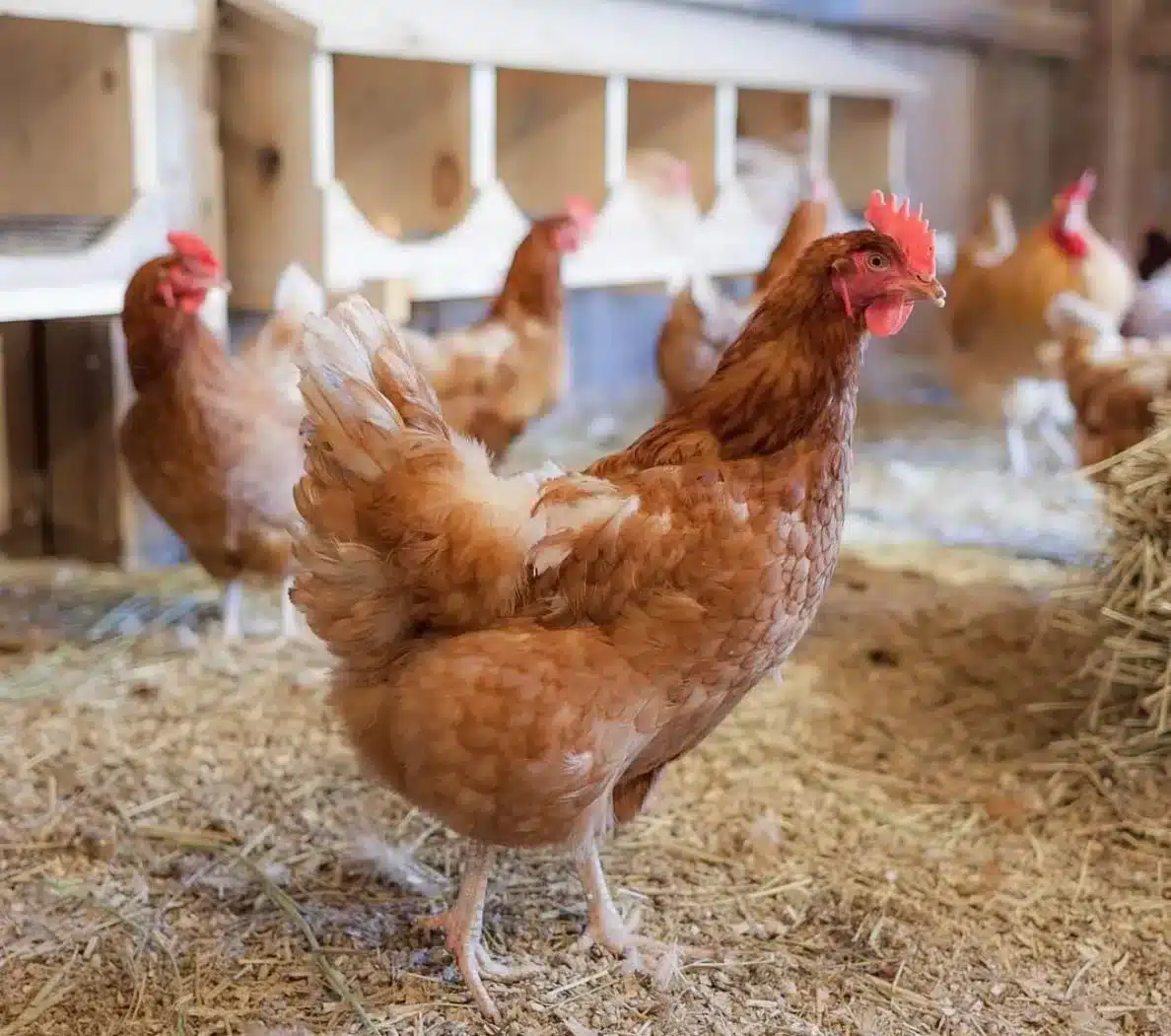
When Christine and Brian Templeton started raising animals for themselves, they thought they’d make their mark with pork instead of chicken. Brian had run Walden Partner Farmer Steve Normanton’s pig operation for a few years and felt a connection with the animals—it seemed like a natural fit for when they set out on their own.
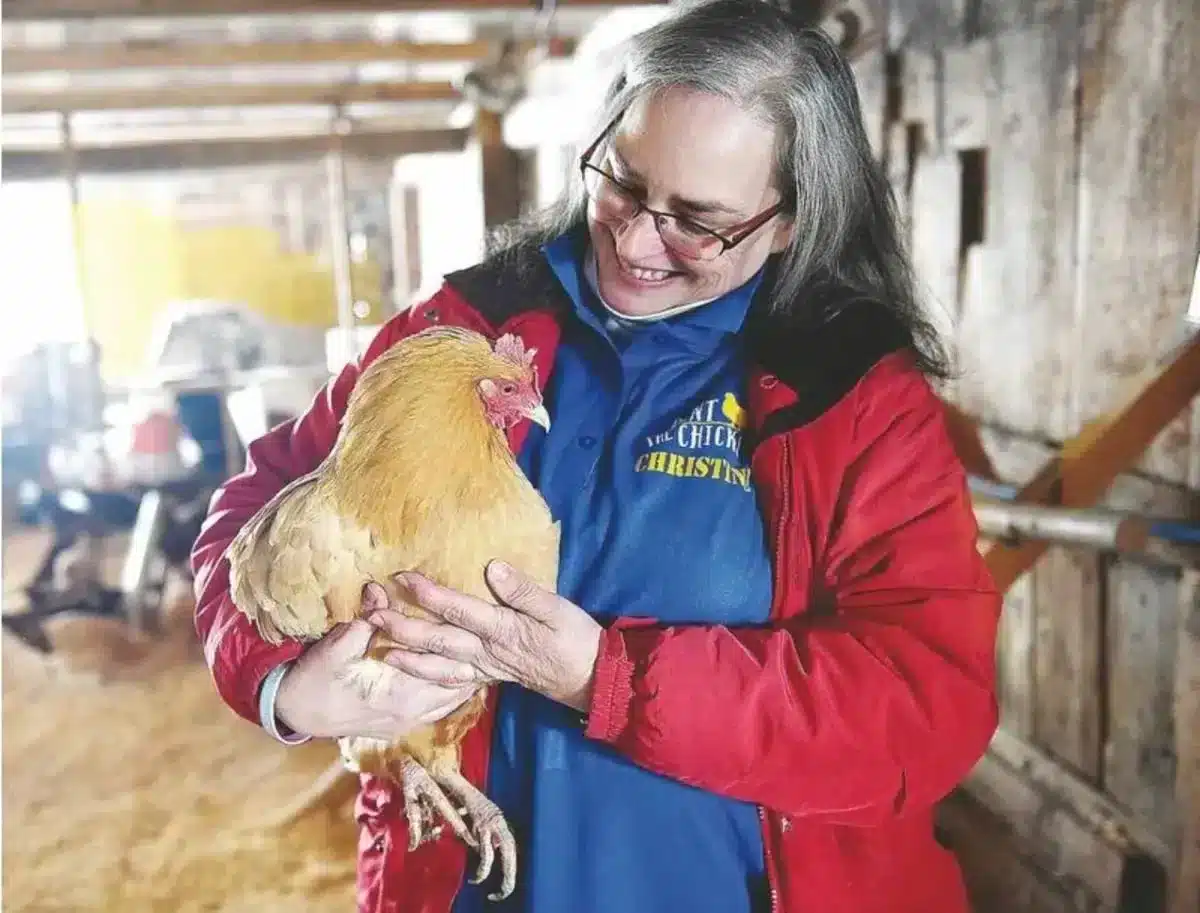
Soon, Christine and Brian found themselves raising fruit, vegetables, honey, maple syrup, chickens, and turkeys—in addition to pork. “A friend of mine said to me, you know, you guys are doing everything. You need to figure out what you’re best at and focus on that,” said Christine. “And that was clearly poultry. We just had a superior product.”
It didn’t take long for the Templetons’ chickens to capture the attention of the community around Goffstown, New Hampshire. They had a steady customer list and were making inroads into new markets. Brian and Christine began raising laying hens in the winter to sell to other local growers, but when demand began to shift, the Templetons focused their attention on their summer crop of broilers. Now, they raise approximately 6,000 meat chickens a year, mostly for Walden.
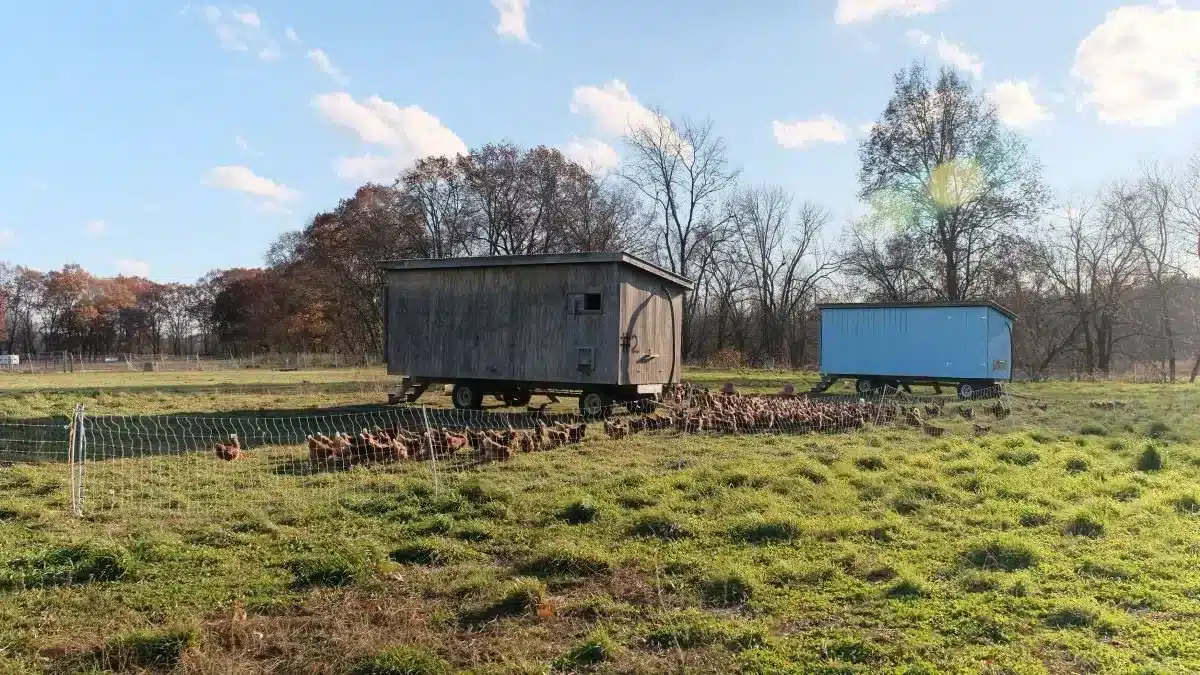
“We had built this amazing infrastructure in our barn, we have this whole system with rotating pens,” Christine said. “But we still use old-fashioned brooders, an old-fashioned watering system, and old-fashioned feeders.”
For the Templetons, it seems raising great, pasture-raised food doesn’t require new technology or efficient engineering as much as it relies on nurturing instincts and attention to detail. “Most of farming is being attentive,” said Christine. “We’re in the pens. We’re in with the chickens a lot to care for them. We’re watching how they eat. Do they have enough feed and water space? Are they warm enough?”
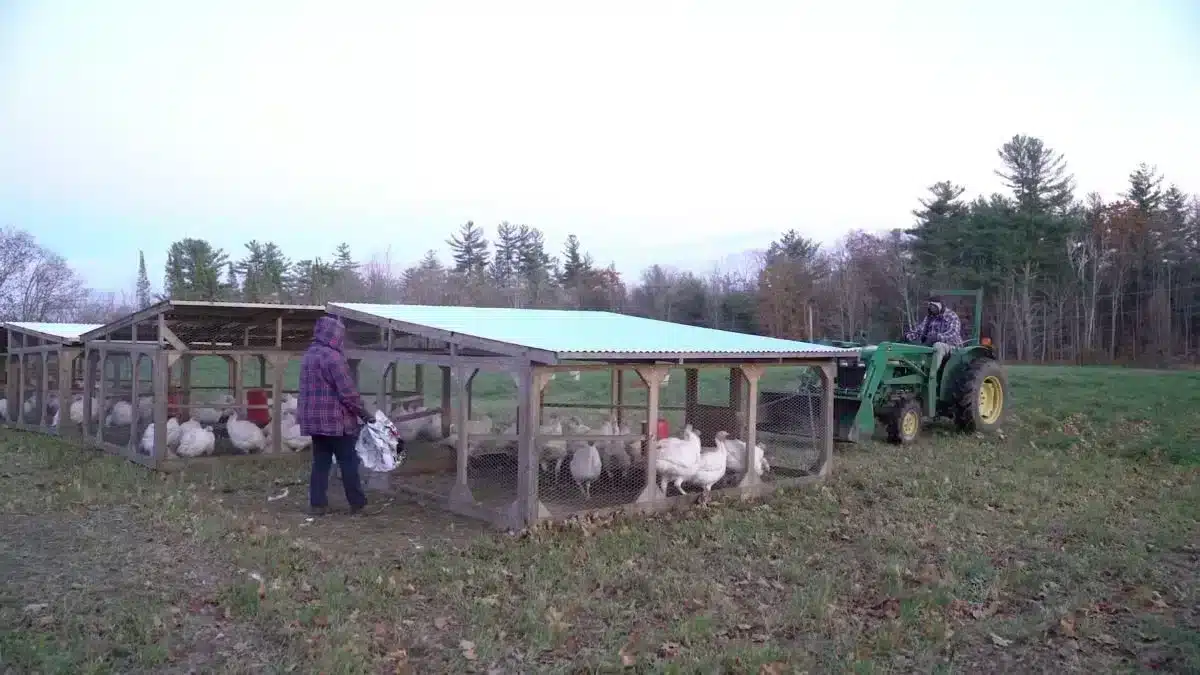
The Templetons bought their family farm in Goffstown in 2015 and have raised both animals—and children. “The kids do a lot of work, they all have their specific chores, and I feel it’s part of developing a work ethic,” said Christine. But raising kids on a farm is about more than just free labor to the Templetons, it’s also about getting them in touch with their food sources. For Christine, it’s important for her children to know what it’s like to raise an animal for food and to see the difference that a good life makes for an animal.
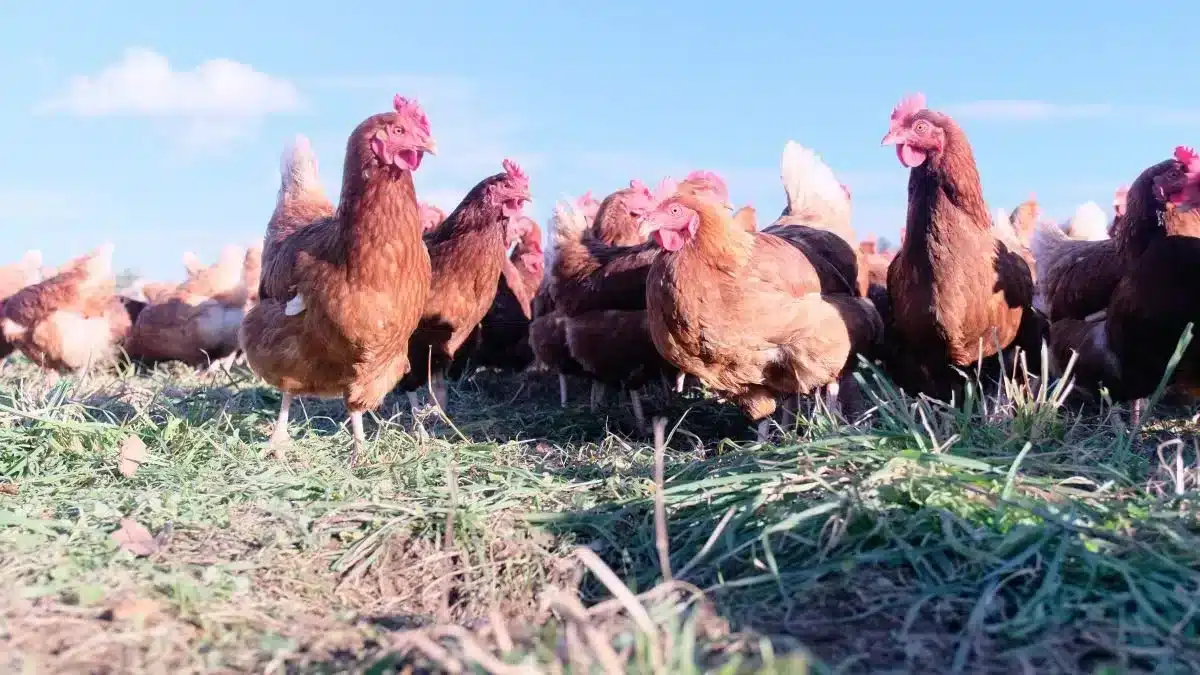
“A lot of people ask, how can you eat what you raised, but we know that the animals have had the best lives possible with the best feed possible, and the best care possible. They live the way they’re supposed to live. They’ve been humanely raised and cared for with a lot of love and attention,” said Christine. “So, the kids would rather eat our meat, knowing where it came from than anything else.”

Christine says she sees the same reaction when people come to visit the farm. Sure, it takes more time, and it’s more expensive to produce pasture-raised, well-cared-for livestock. It’s more demanding work, too. But seeing, touching, and being around the animals has a profound impact. People begin to disassociate the chicken on the farm with the chicken at the supermarket. They understand their food better—having well-raised food becomes more important.
“If they come by the farm, I show them around so they can see where their food is coming from,” said Christine. “And I think they start appreciating it more. They see our family out there working. There’s a lot that goes into that.”
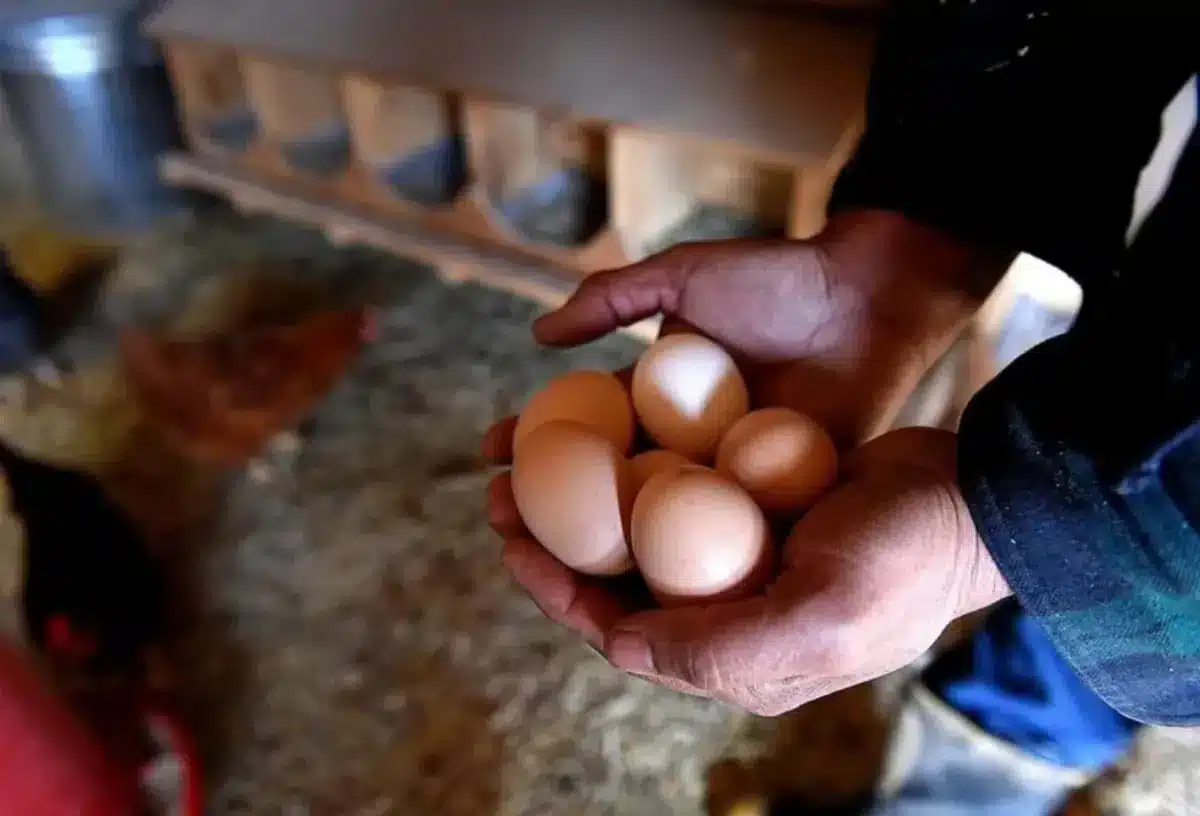
Here at Walden, we’re thankful to partner with farmers like Christine and Brian Templeton, who believe pasture-raised animals that live good lives not only make better-tasting food but healthier food for our bodies and the planet. Chicken season is right around the corner, and we’re happy the Templetons will be working with Walden to make sure every share for every member has healthy, well-raised, and delicious food for your families to enjoy.
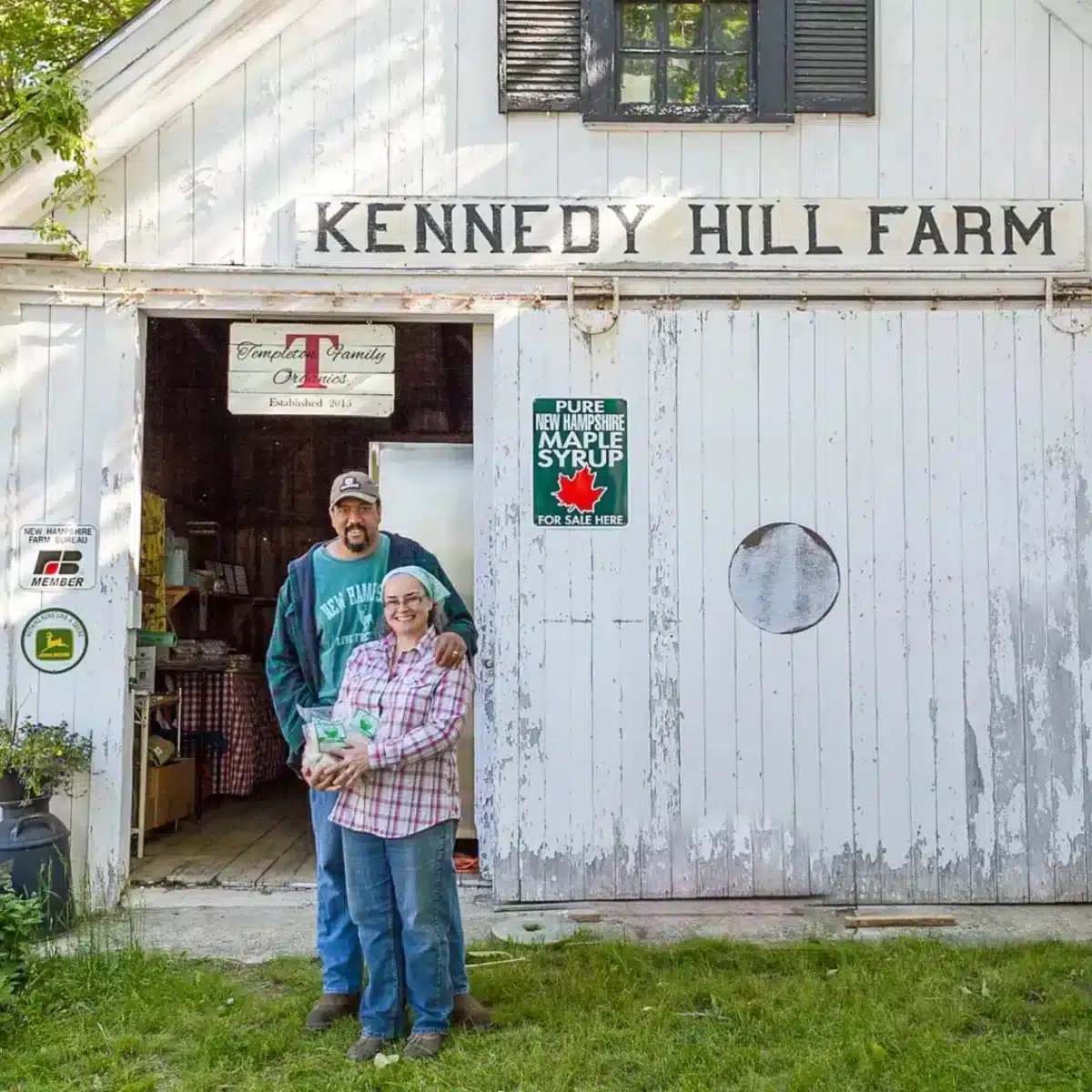
P.S. We already knew we had amazing members, but you guys have really shown your support with our call for creative signs for our drivers! Thank you so much for your continued support as we all rally through this time, we appreciate you!
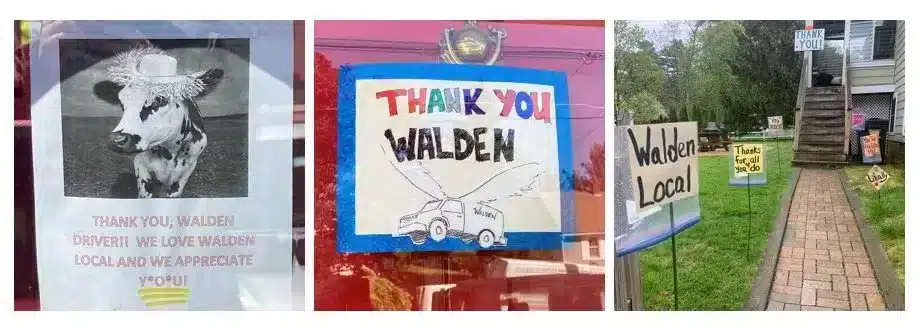
Related Posts

Grass-Fed Classic Eggnog
A rich and creamy eggnog made with Walden’s milk and eggs.
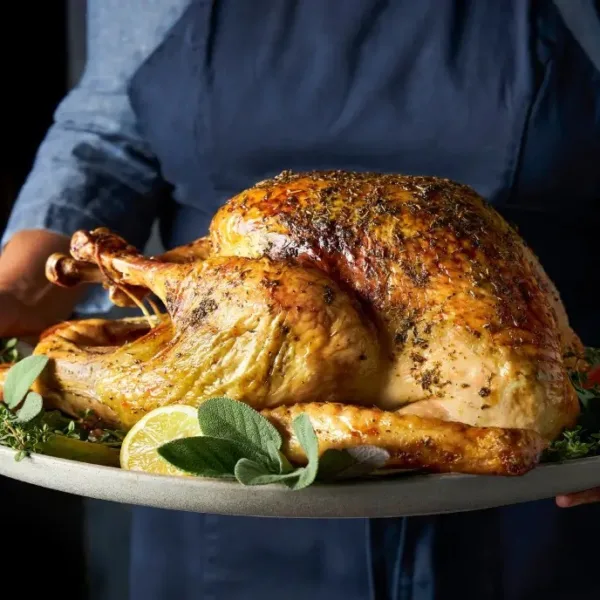
Cooking Your Pasture-Raised Turkey
The difference between a Thanksgiving turkey raised outdoors on pasture and one raised inside in confinement is significant.
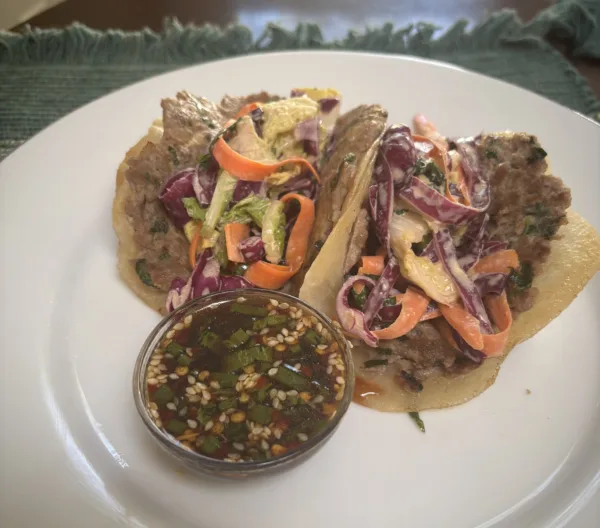
Smash Dumpling Tacos with Walden Pork
A novel (and delicious!) way to use ground pork in your weeknight rotation.